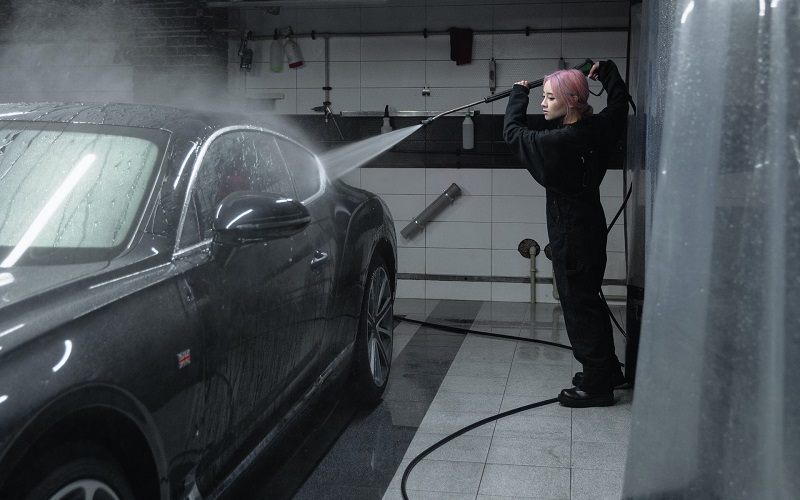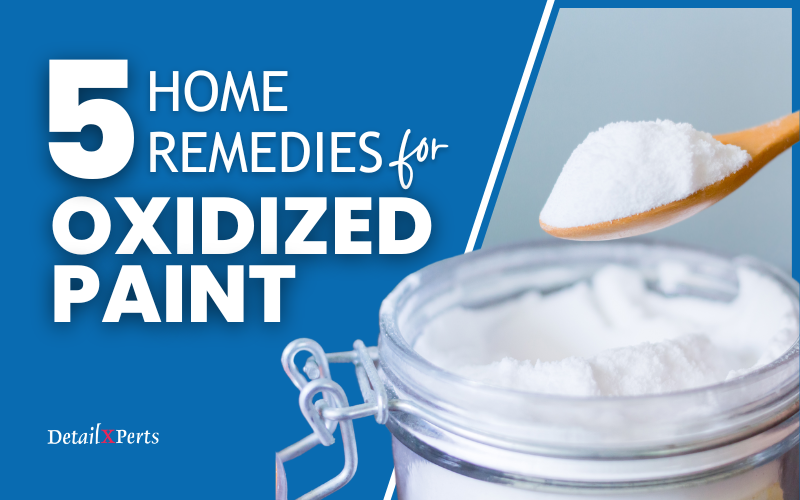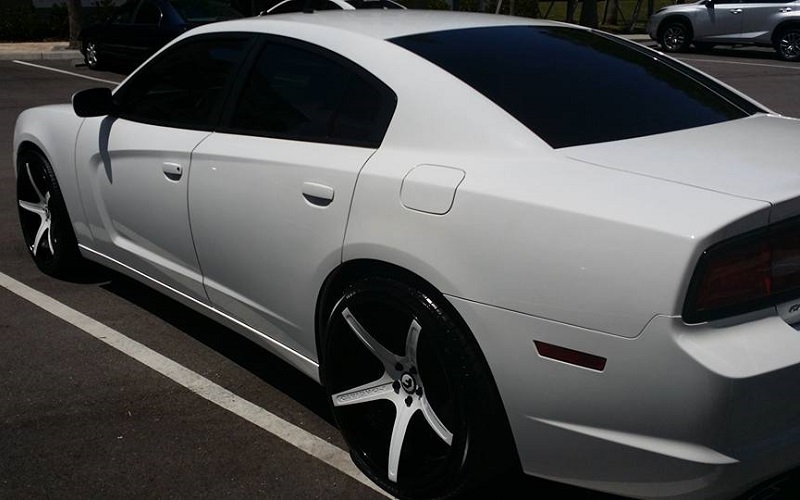The brilliant shine and gloss of a car’s paintwork is beautiful to look at. However, if your pride and joy is starting to look a little dull and faded, it is most likely a sign of oxidation damage. What causes paint oxidation? Simply put, oxidation is a chemical reaction. As a result, molecules, atoms or ions are chemically changed. For example, oxygen is an oxidizer that changes the molecular structure of paint. This is what causes paint oxidation on your car. As a result, the once-glossy paintwork begins to look faded. The paint also loses its smooth sheen and feels rough to the touch. In extreme cases, car paint takes on a distinctive chalky or cloudy appearance. Not only does paint oxidation look unsightly but it will also reduce a vehicle’s resale value. Ideally, auto preventative maintenance is better than any cure. Take a closer look at what causes paint oxidation and discover tips on how to prevent it.
Understand What Causes Paint Oxidation and How to Prevent Each Cause
Exposing Car Paintwork to UV Rays
Do you always park your car outside? If you do not have a garage or driveway, street parking may be your only option. However, exposure to strong sunlight over time will eventually lead to car paint problems. Think of the effects the powerful rays of the sun have on our skin if we do not protect ourselves with sunblock. Unprotected skin loses its natural oils and dries up, leaving it tired and weathered-looking. Car paintwork suffers in much the same way. Your car gets its glossy showroom shine from the oils in automotive paint.
So what causes paint oxidation? UV rays heat the paint and the combination of heat and atmospheric oxygen trigger a chemical reaction. This is what causes the paint to oxidize. As a result, the paint oil dries up and this affects the color and shine of your car.
Tip
You can help to prevent paint oxidation by parking your car in the shade whenever possible, especially in the summer months when the sun’s rays are stronger. Or maybe think about investing in a car cover to protect the paintwork from the elements. However, if serious UV damage has already caused the paint to oxidize, you may need to leave car paint correction to the professionals.
Build-Up of Contaminants
What causes paint oxidation? Environmental pollution and a build-up of contaminants will sooner or later affect the high-shine and smooth look of car paintwork. For example, carbon pollution from exhaust fumes in high-traffic areas can visibly affect your car exterior. Rough, microscopic carbon-based molecules, although not visible to the naked eye, quickly build up on paintwork and damage the clear coat. It is possible to buff out any imperfections with a cutting compound. However, caution must be taken when removing a layer of clear coat. If you overdo it, you will strip away all of the paint protection. This enables the chemicals that cause paint oxidation to freely attack the paintwork and cause even more damage.
Tip
Prevent a build-up of contaminants with a regular car wash to remove particles of dirt and pollution on the paint surface of a car. If the paintwork is starting to feel rough and bumpy, it is important to remove oxidation from car paint straight away.
Lack of Car Care
Lack of car care is another example of what causes paint oxidation. Unfortunately, many people simply do not have the time to devote to regular car care. If you don’t look after your vehicle, paint oxidation could become a problem. The condition and color of your car paint is key to a vibrant shine and gloss. Therefore, the car exterior needs that little extra care and attention to maintain and preserve its good looks.
Tip
Help to maintain car paint by waxing your car after washing it. Or use a specialized paint protectant. If you don’t have the time to do it yourself, seek out the services of a professional detailer who will give paintwork an extra layer of protection to help prevent oxidation. If you already notice some damage, home remedies for oxidized paint may help.
Using Harsh Car Cleaning Products
If you are wondering what causes paint oxidation, be mindful of which car cleaning products you use. Some of the stronger, more abrasive cleaners are not always kind to your car’s paint surface. Harsh solutions can strip away the oils in paint while abrasive cleaners often contribute to the gradual wear and tear of a car’s clear coat. Once the sunlight and oxygen get to any exposed areas, there is a risk of corrosion. If this happens, it is important to know how to remove oxidation before the problem worsens.
Tip
Switch to eco-friendly cleaning products that are gentle on car paintwork and much better for the planet. Alternatively, seek out an eco green car wash business that knows which car detailing products you should avoid.
What Causes Paint Oxidation? The Age of a Vehicle and Type of Paint
The age of a car is often reflected in its appearance. Older vehicles, especially if not garaged, will inevitably show signs of oxidation unless regular car care treatments have kept the exterior in pristine condition. Fortunately, automotive coating technologies and the quality of vehicle paintwork are improving all the time. The global automotive paints market is a booming industry. It is projected to reach $12.34 billion by 2026, growing at a CAGR of 4.2% from 2019 to 2026. There has also been an upsurge in demand for eco-friendly automotive paints. These waterborne paints are much better for the environment, unlike solvent-based paints that release more emissions. Other advantages of the latest waterborne paints include good resistance to heat and excellent corrosion protection to help prevent paint oxidation.
Tip
The quality of the paintwork makes all the difference to a car. It is worth checking out durable waterborne coating solutions. When it comes to overall finish and quality, waterborne paints tend to have a superior gloss level and there is less chance of paint defects. Coverage is excellent, which enhances overall aesthetic appeal.
Conclusion
If you drive your car daily or park it on the street, sooner or later your car will begin to show signs of oxidation. Knowing what causes paint oxidation makes it easier for you to take preventative measures to protect and enhance the aesthetic appeal of your car. Show your car some love and look after it properly. However, if you begin to notice paint oxidation damage, don’t ignore the problem. The dead paint needs to be removed before you can work at restoring the vibrant shine of your car. Well-maintained vehicles will enjoy a higher resale value.
To keep your car looking beautiful, schedule an appointment with DetailXPerts to have your car paintwork evaluation. If oxidation is beginning to show, our professional detailers will be able to suggest ways to fix the problem.
If you have enjoyed this post, be sure to sign up for our monthly newsletter. You will receive more valuable tips and ideas on how to look after your car.





